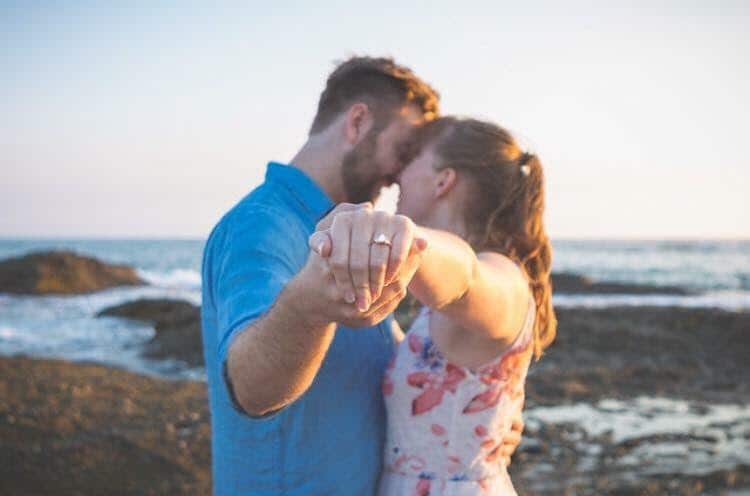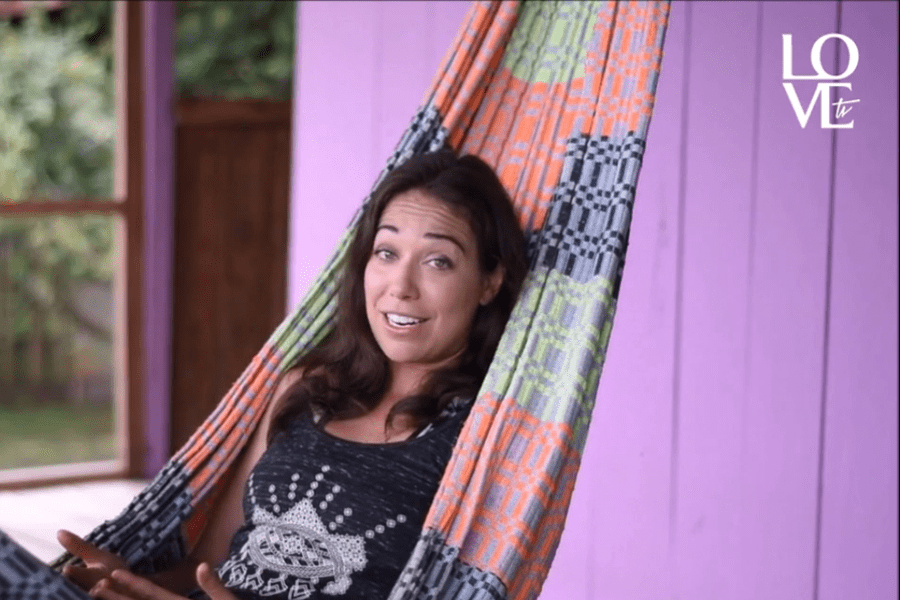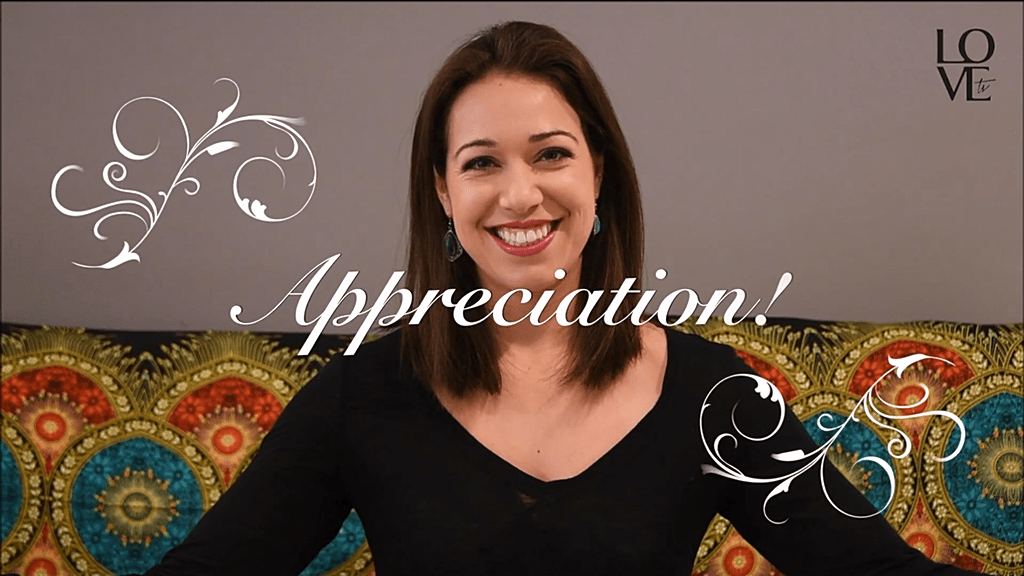In the Mara region of northern Tanzania, Abigail Haworth discovers an empowering tribal tradition undergoing a modern revival.
Mugosi Maningo and Anastasia Juma’s homestead lies among a cluster of hamlets that make up the remote village of Nyamongo in far northern Tanzania. There’s no road to their circular thatched houses in the bushland, only a snaking dirt track carved out by cattle on their way to graze. It’s early May—the rainy season in this part of East Africa—and the sky is growling loudly. The two women rush to gather crops before the inevitable downpour hits. “My wife and I do everything together,” says Juma, 27, a petite woman wearing a fuchsia T-shirt and short braids in her hair. “We’re just like any married couple.”
Almost, but not exactly. As members of the Kurya tribe, a cattle-herding community with a population of roughly 700,000 spread across northern Tanzania, Juma and her wife, Mugosi, 49, are married under a local tradition called nyumba ntobhu (“house of women”). The practice allows women to marry each other to preserve their livelihoods in the absence of husbands. Among the tribe—one of more than 120 in the country of 55 million people—female couples make up 10 to 15 percent of households, according to Kurya elders. The unions involve women living, cooking, working, and raising children together, even sharing a bed, but they don’t have sex.
“AMONG THE TRIBE—ONE OF MORE THAN 120 IN THE COUNTRY OF 55 MILLION PEOPLE—FEMALE COUPLES MAKE UP 10 TO 15 PERCENT OF HOUSEHOLDS, ACCORDING TO KURYA ELDERS.”
According to Dinna Maningo (no direct relation to Mugosi), a Kurya reporter with leading Tanzanian newspaper Mwananchi, nyumba ntobhu is an alternative family structure that has existed for many years. “Nobody knows when it started,” she says, “but its main purpose is to enable widows to keep their property.” By Kurya tribal law, only men can inherit property, but under nyumba ntobhu, if a woman without sons is widowed or her husband leaves her, she is allowed to marry a younger woman who can take a male lover and give birth to heirs on her behalf. The custom is very different from same-sex marriages in the West, Dinna adds, because homosexuality is strictly forbidden. “Most Kurya people don’t even know gay sex exists in other parts of the world,” she says. “Especially between women.”
Outdated attitudes aside, Dinna, 29, says nyumba ntobhu is undergoing something of a modern revival. In the Kurya’s polygamous, patriarchal culture, where men use cows as currency to buy multiple wives, rising numbers of younger Kurya women are choosing to marry another woman instead. “They realize the arrangement gives them more power and freedom,” she says. “It combines all the benefits of a stable home with the ability to choose their own male sexual partners.” Marriages between women also help to reduce the risk of domestic abuse, child marriage, and female genital mutilation. “Sadly, these problems are rife in our society,” Dinna adds. “Younger women are more aware these days, and they refuse to tolerate such treatment.”
The arrangement is working out happily for Juma and Mugosi so far. The couple married in June 2015 after meeting through neighbors. At the time, Juma was struggling to raise three small sons by herself.
When Juma was just 13, her father forced her to marry a 50-year-old man who wanted a second wife. He gave Juma’s father eight cows in exchange for her and treated her “like a slave.” She gave birth to a baby boy in her late teens and ran away with the child shortly afterward. She then had two more sons with two subsequent boyfriends, both of whom failed to stick around. “I didn’t trust men after that,” she says, sitting outside the thatched hut the couple now shares. “I certainly didn’t want another husband. Marrying a woman seemed the best solution.”
Her wife, Mugosi, who has spent the morning toiling in the fields in an old gray dress and rubber boots, says Juma was the perfect match for her. Her husband left her 10 years ago because she couldn’t have children. He moved to the regional capital city of Mwanza, leaving her at their homestead in Nyamongo in northern Tanzania’s Tarime District, a farming and gold-mining region roughly the size of Iowa. They never formally divorced. When he died 18 months ago, ownership of the property, comprising six thatched huts and some land, was in danger of reverting to his relatives. “I was lucky to find Anastasia and her boys, because I now have a family with ready-made heirs,” says Mugosi. “I love them very much.”
The couple did not have a wedding ceremony, but Mugosi paid Juma’s original “bride price” of eight cows to the family of her first husband. The payment released Juma from her ties to him and cemented her marriage to Mugosi. Almost all Kurya marriages, whether to a man or a woman, involve the payment of bride price, or dowry, to the younger woman’s family. Dowries average between 10 and 20 cows (one cow is worth around 500,000 Tanzanian shillings, or about $230), and teen girls are typically married off to the highest male bidder.
The two women live off their land, growing maize, millet, wheat, and vegetables, and keeping cows, goats, and chickens. They share the care of Juma’s sons—Muita, 11; Dominico, 7; and Daudi, 4—and hire local men to do odd jobs. “We divide everything equally,” Mugosi says. “We both have peaceful natures, and so far we haven’t had any arguments.” While she is no longer interested in romantic relationships with men, she’s happy for Juma to have an independent love life. “Anastasia is still young, so it’s natural for her to want a man to keep her company at night,” Mugosi says. “I won’t interfere with her choice of boyfriends. That is up to her.”
There is no shortage of men keen to sleep with women in all-female marriages, so Juma is in a position to be picky. “They think it’s easy sex,” Juma says. “But I am choosing carefully because I want a man who is kind and reliable.” She hopes to find a lover who is willing to be the biological father of future children. “Mugosi and I would like at least three more children to expand our family,” she says. “In our culture, the more children you have, the richer you are.” Nyumba ntobhu marriages are not recognized in Tanzanian law, only in tribal law, so any man who fathers the children must agree to honor tradition and give up all paternal rights. “He has to respect our household and not get jealous,” Juma says.
“DISPUTES ABOUT PATERNAL RIGHTS ARE RARE (MOST MEN ARE TOO RELUCTANT TO DISOBEY FORMIDABLE TRIBAL ELDERS, WHO SUPPORT THE SAME-SEX UNIONS).”
According to Dinna, disputes about paternal rights are rare (most men are too reluctant to disobey formidable tribal elders, who support the same-sex unions), but they do happen and can cause problems for female couples. Dinna has covered a couple of cases where biological fathers sued for custody of the children in Tanzania’s courts, and the judges were torn owing to the marriages’ lack of formal status. “In one case, the ruling favored the women, and in the other case, the man won,” she says. “The law really needs to be clarified.”
The chief tribal elder is Elias Maganya, 65, who lives in a village outside the main town of Tarime. Maganya is the chairman of the Kurya Tribal Council, the body that governs the tribe in the Tarime District. It’s easy to appreciate that he is not a man to cross. Tall and imposing in khaki pants and a trilby-style hat, he holds forth in the shade of a sprawling baobab tree as villagers sit at his feet. Tribal leaders condone marriages between women, he explains, because they serve a number of functions within the tribe. “They solve the problem of what to do about widows. A widow gets to keep her property, and she does not become a burden when she gets old,” he says. “No man wants to marry a woman who can no longer bear him children.”
There’s also the matter of complex clan politics. The Kurya tribe is made up of 12 main clans, each of which is divided into subclans. “If a woman is widowed, the remaining members of her dead husband’s clan want his property to stay within their group,” Maganya says. “They prefer her to marry a woman rather than get remarried to a male outsider.” Wouldn’t it be simpler to change the law and allow Kurya women to inherit directly? “No. That will never happen,” he says. “It is our tradition for men to inherit land and property, so the council would never agree.”
He’s undoubtedly right, given that women have zero say in the matter: All 200 members of Tarime’s Kurya Tribal Council are male. Such discrimination is reinforced by gender inequality nationwide—according to various sources, less than 20 percent of Tanzanian women own land in their own names.
The Kurya tribe seems to be the only one that practices same-sex marriage to address the issue, and it’s not a fail-safe solution. Thirty years ago, when widow Veronica Nyagochera was 51, she married Mugosi Isombe, who was 20 at the time. Nyagochera had five daughters of her own but no sons, so she hoped her union with Isombe would produce heirs. But throughout the women’s marriage in a hamlet near Tarime, Isombe, too, gave birth to only girls. “We had four daughters. They brought us great joy, but we still had a problem,” says Isombe, a statuesque woman in a black-and- white-checked headdress, who is now 50. “If my wife died, we would lose everything—our houses, our land, our livestock would all be given away to a distant male relative.”
Isombe decided to look for a younger wife of her own. Some local men offered their teenage daughters, demanding cows as dowry. But Isombe refused. “Some people don’t care who their daughters marry, as long as they get paid,” she says. “But I am strongly against forced or child marriage. I could only accept a wife who agreed to this kind of marriage freely.”
Three years ago, Isombe met Paulina Mukosa, who had just turned 18. Mukosa’s father had tried “many times” to marry her off to various men, but she resisted, often putting up such a fight that male suitors bolted. Her father beat her for her disobedience, but that only strengthened her resolve. “All my life, I watched my parents having violent arguments that ended up with my mother being injured,” says Mukosa, a cropped-haired woman in a turquoise cotton wrap flanked by fussing goats and small children outside her hut. “I had seen other women and girls in my village being beaten by their husbands and fathers, even by their brothers. I didn’t want to be trapped like that.”
After meeting Isombe, Mukosa, now 21, readily agreed to the marriage. “I liked that marrying a woman would give me more control over my own body and affairs,” she says. By the time she was married, her father was so eager to see her go that he demanded “only seven cows” from Isombe.
In 2013, Mukosa moved in with Isombe and Nyagochera, who is now 81. The two older women gave her a private hut in their hamlet of eight traditional huts. She quickly found a boyfriend, an unmarried local man in his 20s, and gave birth to a son just over a year later. She is currently eight months pregnant with her second child by the same boyfriend. Her two wives were overjoyed that she’d produced a male heir so fast. “They slaughtered a goat to celebrate,” Mukosa says.
“MARRYING A WOMAN [GAVE] ME MORE CONTROL OVER MY OWN BODY AND AFFAIRS.”—PAULINA MUKOSA, WHO IS MARRIED TO TWO WOMEN
Still, the notion that Mukosa felt she’d have more control over her body seems odd given that her primary purpose was to give the women a son. Didn’t she feel exploited? “No, not at all,” she insists. “I understood that I had to give birth, but I wanted children anyway, so it was my choice as well. There is no choice if you marry a man—as well as giving him children, you must also have sex with him whenever he wants, or he will beat you for being a bad wife.” Mukosa says she enjoys seeing her boyfriend two or three times a week, but she’s glad that he takes a secondary role in her home life. “So far he has treated me beautifully,” she says. “But I can easily break up with him if that changes.”
Domestic violence is the most common form of violence in Tanzania. In 2013, a survey by the Ministry of Health and Social Welfare found that 45 percent of women aged 15 to 49 had experienced sexual or other physical violence in the home. In the Mara region, where Mukosa and her two wives live, the survey found that the prevalence of domestic violence jumped to 72 percent— the highest in the country—a rate decried as a “shameful horror” in an op-ed in national newspaper The Citizen. Causes for the region’s endemic problem included poverty, lack of education, alcoholism, and entrenched discrimination against women. The government runs public-awareness programs and has introduced special desks at police stations for women to report gender-based violence, but there is still no comprehensive legislation specifically outlawing domestic abuse or marital rape.
Isombe says that all-female households are the best defense available against the risk of male violence. “Nobody can touch us,” she says. “If any men tried to take our property or hurt us, they would be punished by tribal elders because they have no rights over our household. All the power belongs to us.” According to Maganya, the tribal council chairman, men are banned from acts of aggression toward women in same-sex marriages because, he says, they are “not their own wives” (revealing, inadvertently, that there are no tribal rules against such abuse in regular marriages). Perpetrators must pay a fine of livestock to the women and repair any damage to their property. For Isombe at least, the deterrent has worked: She’s had very little trouble with men throughout her three decades as a nyumba ntobhu wife.
Such autonomy has also enabled her to spare her four daughters from early marriage. The family’s two oldest daughters didn’t marry until age 18. “We made sure they finished school first,” Isombe says. Their younger daughters, ages 17 and 14, still live at home. “They are studying hard,” Isombe says. “One hopes to become a teacher, and the other a nurse. Our priority is their education.”
Despite their unusual circumstances, the three women try to have a regular family life with their children. “We are very good friends,” Isombe says. “We share all our joy and all our tears, and we don’t get lonely because we have each other.”
In addition to growing crops and raising livestock, Isombe and Mukosa collect mud from nearby marshes to make bricks, which they sell at the market, and both look after elderly Nyagochera. “We don’t have much money, but we have enough to survive, so we are lucky,” Isombe says. The Kurya in their village don’t celebrate birthdays much, but the women treat one another on other special occasions, including festival days. “We give each other new clothes because we like to get dressed up,” Mukosa says. “If we don’t have money for gifts, we go into the bush to get vegetables to make a special meal.”
“PERHAPS NOT SURPRISINGLY, THE FACT THAT YOUNG WOMEN LIKE MUKOSA SEEM TO PREFER SAME-SEX MARRIAGES CAN BE UNSETTLING TO LOCAL MEN.”
Perhaps not surprisingly, the fact that young women like Mukosa seem to prefer same-sex marriages can be unsettling to local men. Magige Mhonia, 32, a man living outside Tarime who is currently involved with a nyumba ntobhu wife living two miles away, says many of his male friends try to talk him out of the relationship. “They say it’s a bad idea to have sex with women in such marriages because they are allowed to sleep with many men, and they probably have HIV/AIDS. Basically, they are jealous and confused,” he says, laughing loudly.
He initially got involved with his girlfriend because a clan member asked him to father her children as a favor to the clan. He soon discovered that he liked the 25-year-old woman, so it was no sacrifice. “We get on very well and are trying for the first baby,” Mhonia says. “I understand that the children will not have my name, but I don’t mind because soon I will have to take a wife and have my own family.” Men are not obliged to take any responsibility for the children they father, but some stay involved and visit on a regular basis. “I hope to be like an uncle,” Mhonia says.
Still, not all nyumba ntobhu unions work out smoothly. Dinna, the Kurya journalist, recalls cases where the younger wife has fallen in love with a boyfriend and run away from her older wife with him. “In a case two years ago, the younger wife stole all her wife’s crops and took the children, and left her with nothing,” Dinna says.
Ill treatment can also work the other way, of course. In Nyamongo, Dinna takes me to meet 17-year-old Eliza Polycap, who fled an abusive same-sex marriage. Polycap’s much- older wife paid a dowry of six cows for her when she was only 12, and arranged for men to have sex with her as soon as she reached puberty. “She didn’t care about me at all. She just wanted children, and she treated me like I wasn’t human,” says Polycap, who escaped with her 3-year-old son a year ago and is now trying to find a way to repay her dowry so she can get divorced. Dinna says such blatant exploitation by older women is rare these days, but it remains a possibility. “We have to be careful not to blindly believe that all nyumba ntobhu marriages are safe,” she says. “Sometimes they just mirror our society’s general culture of abuse toward women.”
Fortunately, all is well at the Nyamongo homestead of Juma and Mugosi. The two women will soon reach their first anniversary as a married couple. They’re not sure if they’ll do anything to celebrate the occasion—their lives are busy with their land, their livestock, and their three boisterous boys. “Anastasia likes goat meat, so I might cook some for her as an anniversary treat,” says Mugosi. Juma is excited about their future together. “The marriage is working out better than I could have imagined,” she says. “I wasn’t sure at first, because it was such a new experience—now, I wouldn’t choose any other way.”
Curated by Erbe
Original Article








